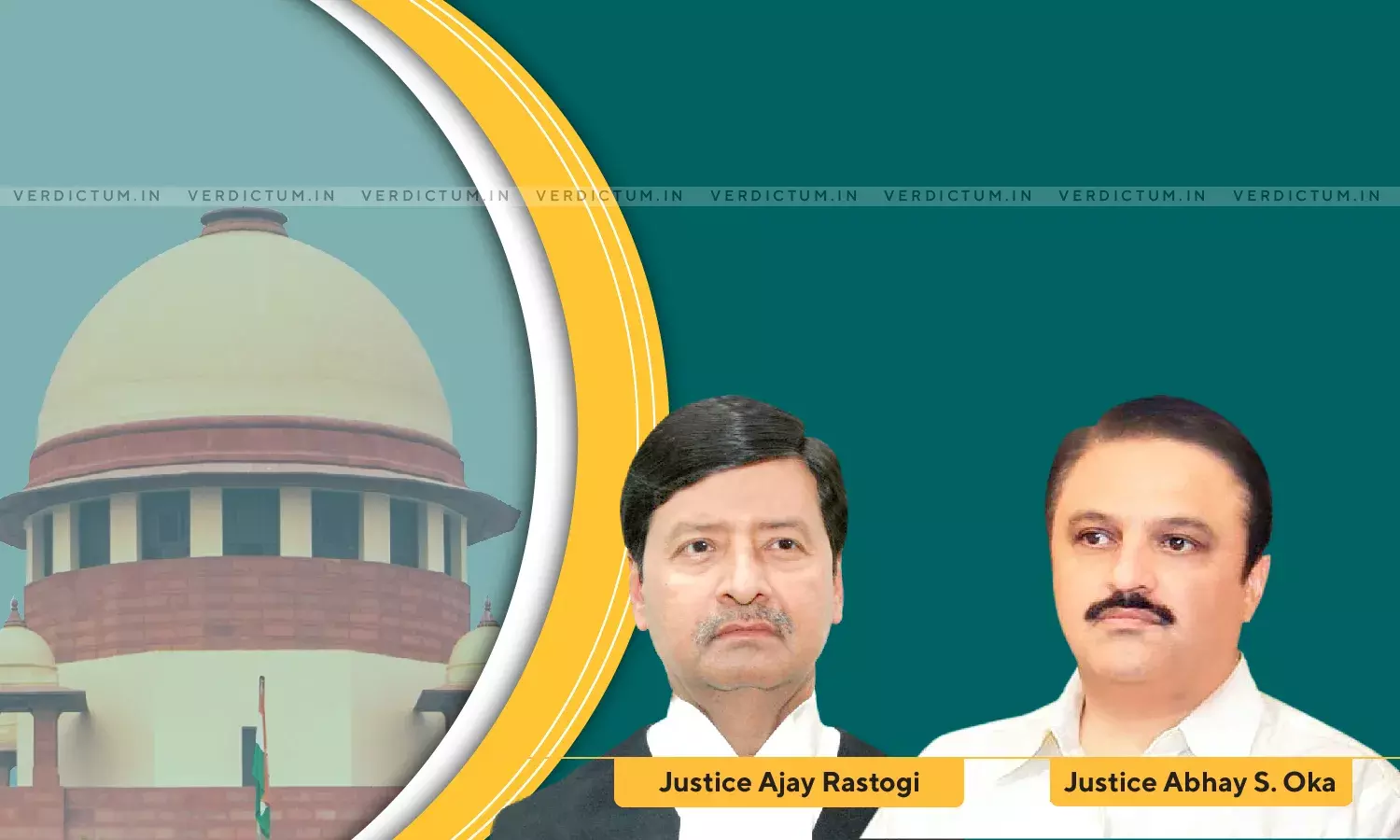Section 138 Complaint Against Non-Signatory Director Can Be Quashed Only If There Is Unimpeachable Evidence About Non-Involvement Despite Necessary Averments: SC

A Bench of Justice Ajay Rastogi and Justice Abhay Oka has held that a Magistrate can summon a non-signatory Director who is not a Managing Director of a Company when the complainant has complied with section 141 of the Negotiable Instrument Act and averred in the complaint that at the relevant time when the offence was committed, the Director was in charge of and were responsible for the conduct of the business of the company. .
"It is necessary to aver in the complaint filed under Section 138 read with Section 141 of the Negotiable Instruments Act that at the relevant time when the offence was committed, the Directors were in charge of and were responsible for the conduct of the business of the company." the Bench observed.
The Bench cited previous judgments of the Apex Court and made it clear that the High Court can only interfere by exercising its power under Section 482 of the Cr.PC if the compliance of Section 141 of NI Act was not made and unless it comes across some unimpeachable, incontrovertible evidence which is beyond suspicion or doubt or totally acceptable circumstances which clearly indicate the non-involvement of the Director.
"If statutory compliance of Section 141 of the NI Act has been made, it may not open for the High Court to interfere under Section 482 CrPC unless it comes across some unimpeachable, incontrovertible evidence which is beyond suspicion or doubt or totally acceptable circumstances which may clearly indicate that the Director could not have been concerned with the issuance of cheques and asking him to stand the trial would be abuse of process of Court.", the Court held.
The Bench cited a judgment in case of S.M.S. Pharmaceuticals Ltd. Vs. Neeta Bhalla and anr. in which Section 141 of the NI Act (vicarious liability) was analyzed thus, "It is necessary to specifically aver in a complaint under Section 141 that at the time the offence was committed, the person accused was in charge of, and responsible for the conduct of business of the company. This averment is an essential requirement of Section 141 and has to be made in a complaint. Without this averment being made in a complaint, the requirements of Section 141 cannot be said to be satisfied."
In this case, the respondent filed a complaint against the appellants under Section 138 of the NI Act. According to the complaint, all Directors of the appellant-Company arrayed as parties are responsible for the business and affairs of the Company. Therefore, the appellant Directors are equally responsible for the offence and they have issued the cheque to discharge their legal liability toward the respondent.
When the Magistrate issued summons, the appellants filed two separate cases before the High Court, one challenging the summons while another to quash the complaint under Section 482 of the Cr.P.C. Both the appeals were heard together and dismissed by the High Court.
The Bench held that, "We are concerned in this case with Directors who are not signatories to the cheques. So far as Directors who are not the signatories to the cheques or who are not Managing Directors or Joint Managing Directors are concerned, it is clear from the conclusions drawn in the aforestated judgment that it is necessary to aver in the complaint filed under Section 138 read with Section 141 of the NI Act that at the relevant time when the offence was committed, the Directors were in charge of and were responsible for the conduct of the business of the company. This averment assumes importance because it is the basic and essential averment which persuades the Magistrate to issue process against the Director."
The Bench further held,"In the case on hand, reading the complaint as a whole, it is clear that the allegations in the complaint are that at the time at which the cheques were issued by the Company and dishonoured by the Bank, the appellants were the Directors of the Company and were responsible for its business and all the appellants were involved in the business of the Company and were responsible for all the affairs of the Company."
The Bench, however, clarified that it will still be open for the appellants to prove in trial that they are non-executive Directors.
Parties : Ashutosh Ashok Parasrampuriya & others Vs Gharrkul Industries Pvt Ltd and others

